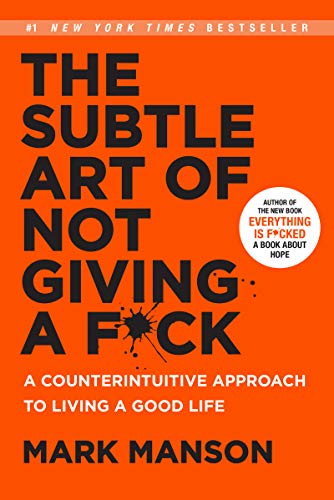Are you tired of feeling insecure and lacking confidence in various aspects of your life? If so, you’re not alone. Many people struggle with self-assurance, but the good news is that confidence is something you can cultivate. In this article, we delve into the science of self-assurance and explore ten psychology tricks that can help you build self confidence.
Using a combination of research-backed strategies and practical tips, we’ll guide you through the process of building confidence from the inside out. From harnessing the power of positive self-talk to utilizing visualization techniques, we’ll provide you with effective tools to enhance your self-belief.
By incorporating these psychology tricks into your daily routine, you can transform your mindset and develop a strong sense of self-assurance. With unwavering confidence, you’ll be better equipped to tackle challenges, achieve your goals, and create a more fulfilling life.
Say goodbye to self-doubt and embrace your ability to radiate confidence. Get ready to unlock your full potential with these ten psychology tricks that will cultivate unstoppable confidence.

The Subtle Art of Not Giving a F*ck
by Mark Manson
⏱ 10 minutes reading time
🎧 Audio version available
Understanding self-assurance and confidence
Self-assurance is the belief in one’s abilities, while confidence is the feeling of certainty and trust in oneself. These two qualities are essential for personal and professional success. When you have self-assurance and confidence, you can tackle challenges head-on, take risks, and achieve your goals.
The importance of confidence in personal and professional success
Confidence plays a crucial role in both personal and professional success. In personal relationships, confidence allows you to communicate effectively, express your needs and desires, and maintain healthy boundaries. In the professional sphere, confidence helps you assert yourself, make decisions, and lead others. Without confidence, you may find yourself holding back, missing out on opportunities, and settling for less than you deserve.
The psychology behind self-assurance
Self-assurance is rooted in the field of psychology and can be influenced by various factors. One key aspect is self-belief, which is the perception of your own abilities. Research has shown that individuals with high self-belief are more likely to take on challenges, persevere in the face of setbacks, and ultimately succeed. Additionally, self-assurance is influenced by past experiences, upbringing, and the environment in which you grew up.
Overcoming self-doubt and imposter syndrome
Self-doubt and imposter syndrome can be significant barriers to self-assurance. Self-doubt is the lack of confidence in one’s abilities or judgment, while imposter syndrome is the persistent feeling of being a fraud despite evidence of competence. To overcome these challenges, it’s essential to challenge negative self-talk, recognize your accomplishments, and focus on your strengths. By reframing your mindset and embracing self-compassion, you can overcome self-doubt and imposter syndrome.
Building a positive self-image and self-esteem
A positive self-image and self-esteem are foundational for cultivating self-assurance. Start by acknowledging your strengths and accomplishments. Celebrate your victories, no matter how small they may seem. Practice self-acceptance and focus on self-improvement rather than perfection. Surround yourself with positive influences and engage in activities that make you feel good about yourself. By nurturing a positive self-image and self-esteem, you can boost your confidence and radiate self-assurance.
Harnessing the power of affirmations and positive self-talk
Affirmations and positive self-talk are powerful tools for building confidence. Affirmations are positive statements that reinforce desired beliefs or behaviors. By repeating affirmations such as “I am capable,” “I am worthy,” and “I can handle any challenge,” you can rewire your brain to believe in your abilities. Additionally, practicing positive self-talk involves replacing negative thoughts with uplifting and empowering ones. By consciously choosing positive self-talk, you can boost your confidence and cultivate self-assurance.
Utilizing body language and non-verbal cues to exude confidence
Body language and non-verbal cues play a significant role in how others perceive us and how we feel about ourselves. Adopting confident body language, such as standing tall, making eye contact, and using open gestures, can help you exude self-assurance. Smiling, maintaining good posture, and speaking clearly and assertively also contribute to projecting confidence. By consciously using body language and non-verbal cues, you can enhance your self-assurance and create a positive impression on others.
Embracing failure and learning from setbacks
Failure is an inevitable part of life, but it doesn’t have to diminish your confidence. Embracing failure as an opportunity for growth and learning is essential for cultivating self-assurance. Rather than viewing failure as a reflection of your abilities, see it as a stepping stone towards success.
Analyze what went wrong, identify lessons learned, and apply them to future endeavors. By reframing failure and viewing setbacks as temporary obstacles, you can build resilience and strengthen your confidence.
Related: 7 Proven Hacks to Build Self-Confidence
Surrounding yourself with supportive and uplifting individuals
The people we surround ourselves with can significantly impact our self-assurance. Surrounding yourself with supportive and uplifting individuals who believe in you and your abilities can boost your confidence. Seek out mentors, friends, and colleagues who inspire and encourage you. Distance yourself from negative influences and those who undermine your self-belief. By cultivating a supportive network, you can create an environment that fosters self-assurance and personal growth.
Practicing self-care and maintaining a healthy mindset
Self-care is crucial for maintaining a healthy mindset and cultivating self-assurance. Take time to nurture your physical, mental, and emotional well-being. Engage in activities that bring you joy and relaxation. Prioritize self-reflection and introspection to gain clarity and develop a positive mindset. Practice self-compassion and forgiveness, as everyone makes mistakes. By prioritizing self-care and maintaining a healthy mindset, you can enhance your confidence and overall well-being.
Say goodbye to self-doubt and embrace your ability to radiate confidence. With the ten psychology tricks mentioned above, you can cultivate unstoppable confidence and unlock your full potential.
Incorporate these strategies into your daily routine, and watch as your self-assurance grows. Remember, confidence is a journey, and with persistence and commitment, you can develop unwavering belief in yourself. Embrace the science of self-assurance and step into a life filled with confidence and success.
Start Your Snapreads Free Trial

What Is Snapreads?
With the Snapreads app, you get the key insights from the best nonfiction books in minutes, not hours or days. Our experts transform these books into quick, memorable, easy-to-understand insights you can read when you have the time or listen to them on the go.
